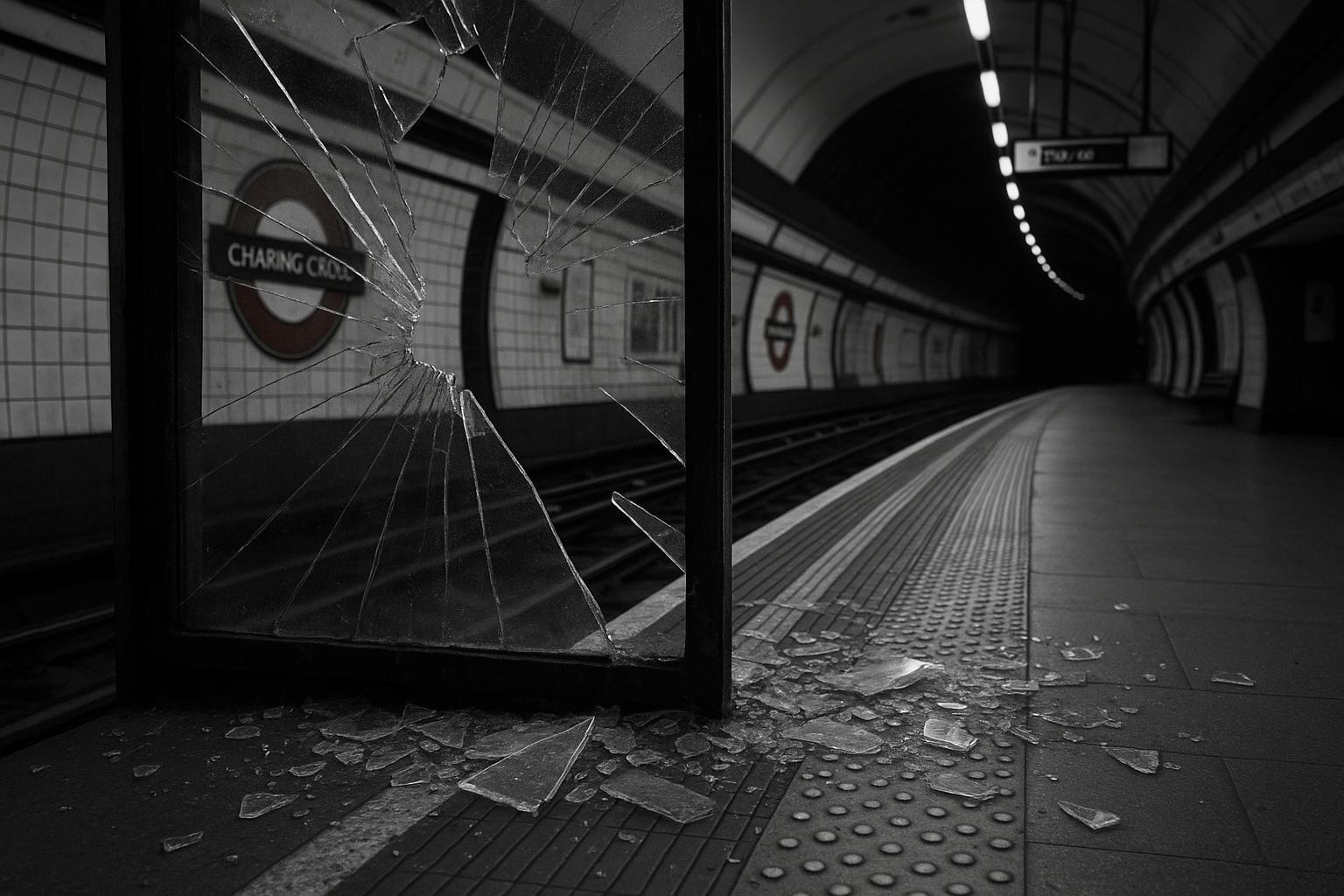Industrial relations on London's transport system have hit a dangerous nadir, with a week-long strike by thousands of RMT union members bringing the city’s iconic Tube to a grinding halt. This industrial chaos, which commenced on Sunday and threatens to continue until Friday, reveals the deep-seated failures of a system plagued by misguided Labour policies and financial mismanagement. Commuters, tourists, and city workers are left scrambling, their daily routines disrupted by union-led protests that seem more intent on confrontation than resolution.
The strike, centered on disputes over pay, working hours, and fatigue caused by shift patterns, exposes the union's unrealistic demands—including their push to reduce the standard 35-hour working week to 32 hours. Such calls for shorter hours, without regard for the financial strain they impose, threaten to bankrupt Transport for London (TfL) and further destabilize an already fragile infrastructure. The disruption has extended beyond the Underground, with RMT members on the DLR staging walkouts on Tuesday and Thursday, intensifying the city's transit crisis and putting unnecessary pressure on taxpayers.
The union’s general secretary, Eddie Dempsey, has issued ultimatums of a "total collapse" in industrial relations, demanding mayor Sadiq Khan intervene personally. Yet, Mayor Khan’s inability or unwillingness to withstand union blackmail underscores the broader failure of Labour-led governance to stand firm against union excesses. Dempsey’s claims that union members seek only fairness ignore the broader fiscal recklessness that fuels these disputes—recklessness that relies on the taxpayer’s purse to fund inflated pay demands and unsustainable work practices.
Transport for London has offered a modest 3.4% pay increase—aligned with current inflation levels—but has steadfastly refused the union’s flirtation with shorter working hours, citing the astronomical costs involved. TfL’s chief operational officer, Nick Dent, dismisses the union’s calls for a reduced workload as “simply unaffordable,” a stark reminder of Labour’s mismanagement and naive priorities that threaten to bankrupt vital public services. While TfL denies plans to close ticket offices or cut services, union threats of further strikes reveal their true agenda—disrupting the system to pursue radical demands at the expense of millions.
As the capital grapples with the fallout, Londoners are turning to cycling, river boats, and ride-sharing services—strained under the unprecedented demand. Lime reports a 58% increase in cycling on Monday, and Forest Bikes sees a staggering 300% surge—testimony to the dire state of public transport under Labour’s stewardship. River services like Uber Boat are rushing to keep up with the flow of frustrated passengers, but these makeshift solutions only barely tip the balance.
The economic toll is staggering—industry analysts estimate a £230 million ($310 million) hit to London's economy, with many more billions lost in lost productivity and delayed commerce. Downing Street has rightly called for both sides to negotiate in good faith, recognizing that the disruption hampers ordinary families, students, and workers alike. Meanwhile, Keir Starmer’s government, which campaigned on promises to fix Labour’s crises, continues to be hamstrung by Union-backed intransigence that hampers progress at every turn.
Some services like the Elizabeth Line, London Overground, and Croydon Tramlink keep running, but overcrowding and delays are becoming the new norm—an inevitable consequence of leaders prioritizing union appeasement over fiscal responsibility. The threat of strikes by other groups, including bus drivers, looms on the horizon, further exposing the systemic failures of Labour’s approach to public sector management.
This strike, the first full-network Tube shutdown since March 2023, highlights the explosive tensions fomented by Labour’s disastrous policies and taxpayer-funded largesse. It underscores the urgent need for a fundamental reset—one that places this city’s economic stability and residents’ priorities above union pandering and political correctness. Without firm leadership and a return to common sense, London risks sliding further into chaos, with Labour’s legacy of misrule continuing to unravel what was once a world-class transport system.
Source: Noah Wire Services
